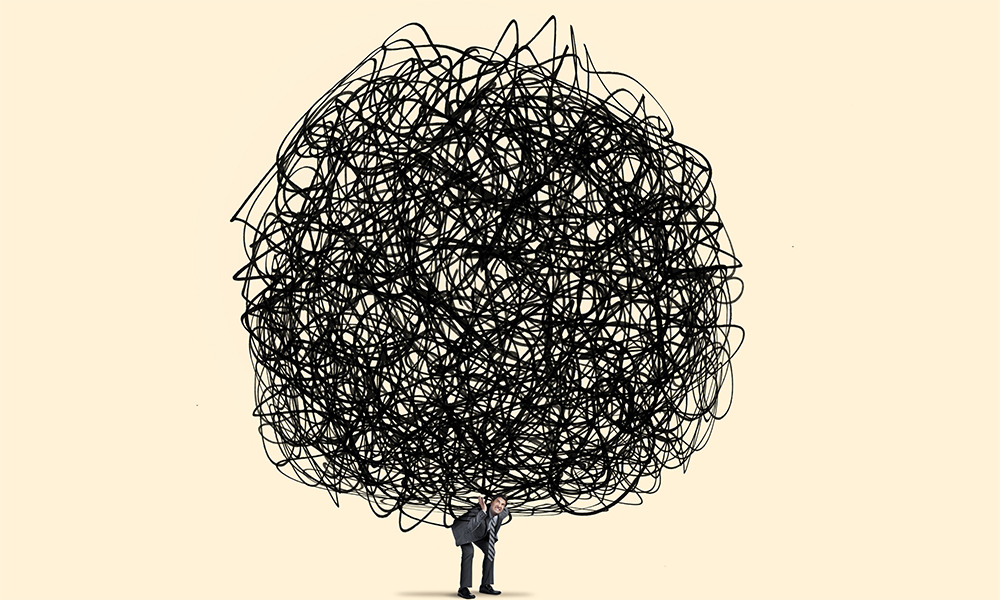Back in December of 2013, we decided to restructure our international operations into geographical clusters, to improve agility and better leverage synergies. And we offered Anand, who was then leading our UK business, the role of cluster head for Latin America and the UK. Anand asked whether he could think about it overnight. Next morning, after discussing it with his family, he said yes. Ten days later, we traveled together to Buenos Aires and soon thereafter, Anand took over the responsibility for the business. A couple of months later, he shifted base to Argentina.
On the professional front, this was an amazing opportunity for Anand. As GCPL’s first expat, he had spent the last eight years in the UK, scaling up our business there. This new cluster head role would allow him to build on this experience. He would have greater responsibility for multiple geographies and work with a larger team. (Last year, Anand wrote an article for the Economic Times, on his experiences living across diverse cultures: http://articles.economictimes.indiatimes.com/2014-10-17/news/55148351_1_uk-business-indian-food-buenos-aires)
But packing up and relocating in such short time, I imagine, was not an easy decision for Anand to make. His wife and school-going children continued to stay on in London. Buenos Aires and London are some 11,121 km apart; almost 14 hours by flight. It was frankly amazing how quickly and astutely Anand decided.
The truth is that success in most cases does not come easily. You are going to have to make some tough calls, and figure out what truly matters to you. So, in my message today, I ask you to think about just that – what are you willing to give up for the success you want to attain?
Around the time when Anand was making the move to Buenos Aires, I sent him this blog post written by author, Mark Manson, called ‘The most important question you can ask yourself today’.
Please read on…
Everybody wants what feels good. Everyone wants to live a carefree, happy and easy life, to fall in love and have amazing sex and relationships, to look perfect and make money and be popular and well-respected and admired and a total baller to the point that people part like the Red Sea when you walk into the room.
Everyone would like that — it’s easy to like that.
If I ask you, “What do you want out of life?” and you say something like, “I want to be happy and have a great family and a job I like,” it’s so ubiquitous that it doesn’t even mean anything.
A more interesting question, a question that perhaps you’ve never considered before, is what pain do you want in your life? What are you willing to struggle for? Because that seems to be a greater determinant of how our lives turn out.
Everybody wants to have an amazing job and financial independence — but not everyone wants to suffer through 60-hour work weeks, long commutes, obnoxious paperwork, to navigate arbitrary corporate hierarchies and the blasé confines of an infinite cubicle hell. People want to be rich without the risk, without the sacrifice, without the delayed gratification necessary to accumulate wealth.
Everybody wants to have great sex and an awesome relationship — but not everyone is willing to go through the tough conversations, the awkward silences, the hurt feelings and the emotional psychodrama to get there. And so they settle. They settle and wonder “What if?” for years and years and until the question morphs from “What if?” into “Was that it?” And when the lawyers go home and the alimony check is in the mail they say, “What was that for?” if not for their lowered standards and expectations 20 years prior, then what for?
Because happiness requires struggle. The positive is the side effect of handling the negative. You can only avoid negative experiences for so long before they come roaring back to life.
At the core of all human behavior, our needs are more or less similar. Positive experience is easy to handle. It’s negative experience that we all, by definition, struggle with. Therefore, what we get out of life is not determined by the good feelings we desire but by what bad feelings we’re willing and able to sustain to get us to those good feelings.
People want an amazing physique. But you don’t end up with one unless you legitimately appreciate the pain and physical stress that comes with living inside a gym for hour upon hour, unless you love calculating and calibrating the food you eat, planning your life out in tiny plate-sized portions.
People want to start their own business or become financially independent. But you don’t end up a successful entrepreneur unless you find a way to appreciate the risk, the uncertainty, the repeated failures, and working insane hours on something you have no idea whether will be successful or not.
People want a partner, a spouse. But you don’t end up attracting someone amazing without appreciating the emotional turbulence that comes with weathering rejections, building the sexual tension that never gets released, and staring blankly at a phone that never rings. It’s part of the game of love. You can’t win if you don’t play.
What determines your success isn’t “What do you want to enjoy?” The question is, “What pain do you want to sustain?” The quality of your life is not determined by the quality of your positive experiences but the quality of your negative experiences. And to get good at dealing with negative experiences is to get good at dealing with life.
There’s a lot of crappy advice out there that says, “You’ve just got to want it enough!”
Everybody wants something. And everybody wants something enough. They just aren’t aware of what it is they want, or rather, what they want “enough.”
Because if you want the benefits of something in life, you have to also want the costs. If you want the beach body, you have to want the sweat, the soreness, the early mornings, and the hunger pangs. If you want the yacht, you have to also want the late nights, the risky business moves, and the possibility of pissing off a person or ten thousand.
If you find yourself wanting something month after month, year after year, yet nothing happens and you never come any closer to it, then maybe what you actually want is a fantasy, an idealization, an image and a false promise. Maybe what you want isn’t what you want, you just enjoy wanting. Maybe you don’t actually want it at all.
Sometimes I ask people, “How do you choose to suffer?” These people tilt their heads and look at me like I have twelve noses. But I ask because that tells me far more about you than your desires and fantasies. Because you have to choose something. You can’t have a pain-free life. It can’t all be roses and unicorns. And ultimately that’s the hard question that matters. Pleasure is an easy question. And pretty much all of us have similar answers. The more interesting question is the pain. What is the pain that you want to sustain?
That answer will actually get you somewhere. It’s the question that can change your life. It’s what makes me me and you you. It’s what defines us and separates us and ultimately brings us together.
For most of my adolescence and young adulthood, I fantasized about being a musician — a rock star, in particular. Any badass guitar song I heard, I would always close my eyes and envision myself up on stage playing it to the screams of the crowd, people absolutely losing their minds to my sweet finger-noodling. This fantasy could keep me occupied for hours on end. The fantasizing continued up through college, even after I dropped out of music school and stopped playing seriously. But even then it was never a question of if I’d ever be up playing in front of screaming crowds, but when. I was biding my time before I could invest the proper amount of time and effort into getting out there and making it work. First, I needed to finish school. Then, I needed to make money. Then, I needed to find time. Then… and then nothing.
Despite fantasizing about this for over half of my life, the reality never came. And it took me a long time and a lot of negative experiences to finally figure out why: I didn’t actually want it.
I was in love with the result — the image of me on stage, people cheering, me rocking out, pouring my heart into what I’m playing — but I wasn’t in love with the process. And because of that, I failed at it. Repeatedly. Hell, I didn’t even try hard enough to fail at it. I hardly tried at all.
The daily drudgery of practicing, the logistics of finding a group and rehearsing, the pain of finding gigs and actually getting people to show up and give a shit. The broken strings, the blown tube amp, hauling 40 pounds of gear to and from rehearsals with no car. It’s a mountain of a dream and a mile-high climb to the top. And what it took me a long time to discover is that I didn’t like to climb much. I just liked to imagine the top.
Our culture would tell me that I’ve somehow failed myself, that I’m a quitter or a loser. Self-help would say that I either wasn’t courageous enough, determined enough or I didn’t believe in myself enough. The entrepreneurial/start up crowd would tell me that I chickened out on my dream and gave in to my conventional social conditioning. I’d be told to do affirmations or join a mastermind group or manifest or something.
But the truth is far less interesting than that: I thought I wanted something, but it turns out I didn’t. End of story.
I wanted the reward and not the struggle. I wanted the result and not the process. I was in love not with the fight but only the victory. And life doesn’t work that way.
Who you are is defined by the values you are willing to struggle for. People who enjoy the struggles of a gym are the ones who get in good shape. People who enjoy long workweeks and the politics of the corporate ladder are the ones who move up it. People who enjoy the stresses and uncertainty of the starving artist lifestyle are ultimately the ones who live it and make it.
This is not a call for willpower or “grit.” This is not another admonishment of “no pain, no gain.”
This is the most simple and basic component of life: our struggles determine our successes. So choose your struggles wisely, my friend.
It really makes you wonder, doesn’t it? And perhaps it is a good idea to think hard about this. Not just about the success that you dream of. But also if it is what you really want. That’s where the part about what you are willing to give up really kicks in. It forces you to make choices. It is your yardstick of how badly you really want something.
Once you have found something to throw all your energy behind, ask yourself if you also know what you will need to give up to make it real. And if you do, have you also found a way to do it? This is by no means easy. It takes a lot of courage, especially if it means stepping out of your comfort zone.
Let’s take an example close to us. As this fiscal year draws to an end, we will start having discussions on the year gone by. Many of us will want to expand our roles, be promoted and take on something larger. But are we really willing to make the sacrifices that this will entail? And be willing to truly raise our personal bar?
Our growth journey as a company will open up tremendous opportunities to experiment and grow. But along with it come the long-haul flights, juggling time zones, working weekends, (un)learning, seriously investing in mentoring, building teams and much more. And this will run in parallel to the demands of the many other hats that you wear – as a parent, spouse, child and friend. So the question is, how will you make these tradeoffs? And what will you give up to strike a balance?
As always, I look forward to your perspectives on this.








Hi Vivek, this article comes at the right time for someone like me whose a parent of a one yr old and already sensing paucity of time for myself. Trade off and pain therein are the way of life. You can’t have the cake and eat it too, is what I realized and this blog just nails it. Thanks for sharing Mark’s writeup!
Hi Vivek
An extremely hard-hitting article !! Answers so many unasked questions. Its the critical decisions and the critical struggles which define the most critical successes.
Lack of personal and professional struggle may still give successes but its the size of the success which matters and Anand’s article in ET demonstrates the same.
Regards
Rishi
Very true and practical theory. Good read. Thanks Vivek.
Simply awesome…never thought two simple questions to self can answer most other questions and confusions in life. Thank you Sir.
Hi Vivek
It’s a very simple article, and I as a Godrej Industries Counsellor, can use it for my clients; employees. I found the moral very simple — if you have a dream, the tapasya, sadhana, upasana, and tolerance will help you enjoy the road and take you to the destination. Thanks.
Hi Vivek,
Thanks for sharing, this article took me by surprise! Here is one interesting piece which I like, which is also similar to the blog shared by you. http://oliveremberton.com/2014/if-you-want-to-follow-your-dreams-you-have-to-say-no-to-all-the-alternatives/
Thanks, Himanshu for sharing a great article.
Reading this article reminds of the lines from the Gita: “Karam karo phal ki chinta mat karo”. I have experienced this, like many of us who also would have. There are times when the outcomes / rewards are more overpowering than the path to reach them. Taking out the expectation of reward from the equation does not mean that one needs to be ambitious.
Mark has beautifully said that in his blog: “I was in love with the result… But I wasn’t in love with the process.”
For me it’s all about falling in love what I do. This reminds me of Jiro, an example that Shailesh had shared in his leading self work shop. Jiro just loves to make his sushi and he did not start making sushi because he wanted to be a Michelin three star. The focus was on the process and not on the outcome. Indeed it is not easy.
Thanks for sharing.
“Because happiness requires struggle. The positive is the side effect of handling the negative. You can only avoid negative experiences for so long before they come roaring back to life.”
An excellent article to absorb individually and as a group. Thank you very much!